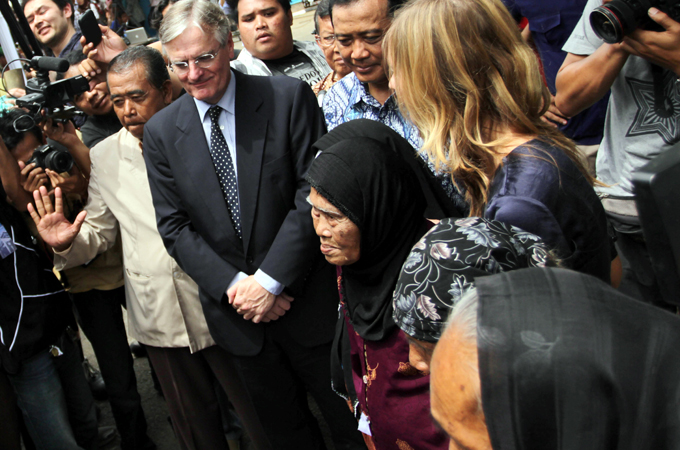Netherlands apologises for Indonesia massacre
Apology comes on 64th anniversary of killing of at least 150 people in village of Rawagede by the Dutch colonial army.

 |
| Dutch ambassador Tjeerd de Zwaan said the apology had the broad support of people in the Netherlands [EPA] |
The Dutch government has formally apologised to the families of victims of a 1947 massacre on Indonesia’s Java island which left at least 150 people dead.
Friday’s apology came on the 64th anniversary of the executions by the Dutch colonial army.
“In this context and on behalf of the Dutch government, I apologise for the tragedy that took place in Rawagede on the 9th of December, 1947,” Tjeerd de Zwaan, the Netherlands ambassador to Indonesia, said.
He repeated the apology in the Indonesian language, to the applause of hundreds of people attending the ceremony, some of whom broke down in tears.
The ambassador said the massacre was a clear example of how Dutch-Indonesian relations could go “so wrong”, and assured the community that the apology had the broad support of people in the Netherlands.
“I hope that by reflecting together on what happened that day we will also be able to turn together to the future and all its opportunities for close productive co-operation between the two countries,” he said.
Landmark ruling
The slaughter happened when Dutch troops entered a village in the town of Rawagede during Indonesia’s fight for independence and killed men and boys as their families and neighbours looked on.
Although Dutch officials say 150 people were killed, a support group and the local community maintain the death toll was 431.
The apology follows a landmark ruling at a civil court based in The Hague in September which concluded the Dutch state was responsible for the executions.
It ruled in favour of seven widows and a survivor of the massacre who brought the case to court.
The court rejected the government’s argument that no claim could be lodged because of an expiry in the statute of limitations in Dutch law of five years, saying this was “unacceptable”.